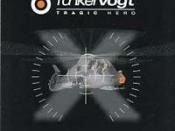"A Romantic Tragic Hero's Fatal Pride at War"
Chelsea Waserman
English ENG2D
Ms. Marcu
February 9th 2014
A tragic hero, whom Aristotle describes as being "true to the self", is a figure similar to a strictly romantic one, as both characters are incapable of conformity. A tragic hero's journey commences in grandeur and concludes in self-destruction due to a tragic flaw, which is most commonly excessive pride. When followed to the extreme, the romantic philosophy of Carpé Diem, which is the belief in seizing the moment in order to live an effective life, brings upon a romantic tragic hero's downfall. Ironically, one who lives following the romantic mantra of Carpé Diem cannot live a meaningful life, due to his or her imbalance of romantic and pragmatic ideals. This exemplifies that one is doomed to physical or emotional self-destruction if he or she is solely capable of viewing the world through an overly romantic or pragmatic lens.
Peter Weir asserts through the emotional and physical death of romantic characters Neil Perry, Charlie Dalton, and Mr. Keating in the film Dead Poet's Society, that a romantic with the fatal flaw of extreme pride, is predestined to become a tragic hero.
Neil Perry is a romantic student with extreme pride in his ideals that is emotionally trapped by his father's pragmatic expectations, and commits suicide in his final act as a tragic hero. Neil begins his journey as a tragic hero in an authoritative position amongst his peers when he resides to recreate the Dead Poet's Society, a club through which he and his romantic friends poetically express themselves. Neil's romantic nature causes him to land the lead role in the play A Midsummer Night's Dream, gaining him even more respect from his idealistic friends. Neil starts to carry...


